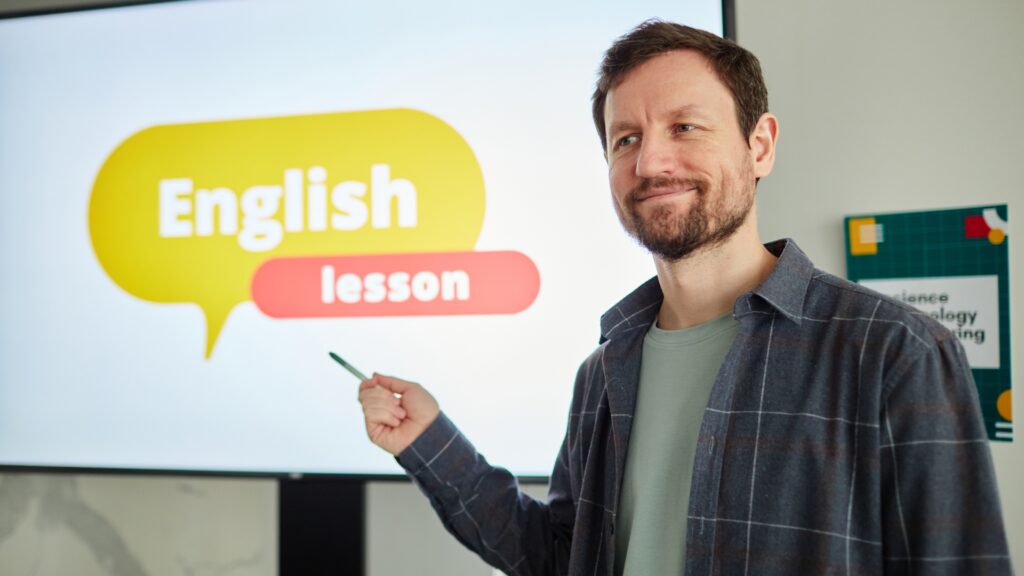In an increasingly interconnected world, proficiency in English is not merely an academic achievement—it’s a strategic asset. ESOL (English for Speakers of Other Languages) programmes equip learners with the language skills needed to excel in diverse professional environments. Whether you’re aiming to climb the corporate ladder, break into the world of English Literature, or strengthen your grasp of English Grammar and Functional Skills English, ESOL offers structured pathways and recognised qualifications that can turbocharge your career. In this guide, we explore seven transformative benefits of ESOL, outline the key qualifications, examine salary benchmarks, and map out clear career roadmaps for learners at every stage.
1. Master the Foundations: English Grammar & Functional Skills English
A solid command of English Grammar underpins every successful communication, from drafting reports to conducting presentations. ESOL courses devote substantial time to grammar essentials—verb tenses, sentence structure, punctuation, and more—so that learners can construct clear, confident messages in both writing and speech. Parallel to this, Functional Skills English focuses on real-world applications: reading workplace documents, writing emails, understanding forms, and engaging in everyday conversations. By integrating Functional Skills into ESOL, you acquire not only accuracy but also practical fluency, making you immediately valuable to employers who demand staff capable of handling documentation, liaising with clients, and navigating software interfaces without constant supervision.
2. Delve into Culture and Context: English Literature
Studying English Literature within an ESOL framework does more than improve vocabulary or reading speed; it immerses learners in the cultural and historical contexts that shape language use. Analysing novels, poems, and plays enhances critical thinking and interpretive skills—qualities prized in fields like publishing, education, and content development. Through guided readings of classic and contemporary texts, ESOL students learn how writers employ tone, metaphor, and narrative structure. These insights translate into superior writing and presentation abilities, positioning you as a candidate with both language proficiency and cultural literacy.

3. Qualifications That Open Doors
Advancing your career with ESOL means aligning your studies to recognised qualifications. Below is an overview of the most sought-after credentials:
| Qualification | Level Equivalence | Focus Areas |
|---|---|---|
| ESOL Entry 1–3 | GCSE below Grade 1 | Basic speaking, listening, reading, writing |
| ESOL Level 1 & 2 | GCSE Grades 1–5 | Functional Skills English; grammar; everyday workplace use |
| IELTS (Academic & General Training) | University & Professional entry | Academic writing, listening, reading, speaking |
| Cambridge English: First (FCE) & Advanced (CAE) | B2–C1 on CEFR | Broad English skills; strong academic and professional orientation |
| Trinity College London Integrated Skills in ESOL | B1–C1 on CEFR | Integrated listening, speaking, reading, writing tasks |
Pursuing these certifications not only validates your language competence but also signals to employers your commitment to continuous professional development.
4. Salary Potential Across ESOL-Related Roles
Understanding how ESOL qualifications translate into income is vital for setting realistic career goals. The table below summarises average annual UK salaries as of 2025 for a selection of ESOL-related professions:
| Job Title | ESOL Level Required | Average Salary (UK) |
|---|---|---|
| ESOL Tutor | Level 3–5 practical teaching quals | £24,000 – £32,000 |
| Functional Skills English Instructor | Level 2–3 plus teaching certificate | £22,000 – £30,000 |
| Curriculum Developer (ESOL/English) | Level 2–3 plus specialist training | £28,000 – £40,000 |
| English Literature Lecturer | Degree plus PGCE / MA in Literature | £35,000 – £50,000 |
| Academic Skills Coach | IELTS/TESOL certification | £26,000 – £38,000 |
| Corporate Language Trainer | CELTA/TEFL plus industry experience | £30,000 – £45,000 |
| Translator / Interpreter | Professional accreditation | £28,000 – £42,000 |
Salaries vary regionally and by sector (public vs private), but across the board, strong ESOL and Functional Skills credentials correlate with higher earning potential.
5. Career Roadmaps: From Beginner to Expert
Whether you’re starting with little English proficiency or aiming to specialise, clear roadmaps help you plan your learning journey and career progression.
Stage 1: Foundation (Beginner – ESOL Entry Levels)
At this stage, focus on basic vocabulary, phonics, and simple grammar patterns. Attend community ESOL classes or online tutorials covering everyday contexts (shopping dialogues, introductions). Combine this with short Functional Skills workshops to practice form-filling and email writing. Aim to achieve ESOL Entry Level 3 or Functional Skills English Level 1.
Stage 2: Consolidation (Intermediate – ESOL Level 1 & Functional Skills Level 2)
Build on your foundation by tackling more complex sentence structures and writing paragraphs. Enrol in a certified ESOL Level 1 programme that integrates English Grammar exercises and introduces thematic vocabulary (workplace, health, technology). Complete Functional Skills English Level 2 to solidify your reading and writing skills under time constraints. Consider taking FCE (First Certificate in English) for broader recognition.
Stage 3: Specialisation (Upper-Intermediate to Advanced)
Choose a niche that aligns with your career interests. If you’re drawn to education, pursue a Level 3 Certificate in Teaching ESOL or Cambridge CAE (Advanced). For roles in content creation or publishing, deepen your engagement with English Literature through an MA or online diploma. Prepare for IELTS Academic if you aim for university admission. Simultaneously, explore subject-specific Functional Skills modules—technical writing, report composition, presentation skills.
Stage 4: Leadership and Innovation
With advanced qualifications, transition into roles that shape policy, curriculum design, or corporate training. Positions such as Curriculum Developer, Programme Manager, or Director of Language Services become within reach. Engage in continuous professional development (CPD) seminars on digital learning platforms, pedagogical innovation, and assessment strategies. Leverage your expertise to mentor new tutors and influence ESOL programmes at institutional levels.
6. Mapping Your Learning: Courses and Providers
Selecting the right course provider ensures quality instruction and industry-recognised credentials. Below is a curated list of established institutions and platforms:
- Local Further Education (FE) Colleges: Offer day-release ESOL classes and Functional Skills qualifications, often subsidised or free for eligible learners.
- University Language Centres: Provide pre-sessional English, IELTS preparation, and academic English courses.
- Online Providers (e.g., FutureLearn, Coursera): Host flexible ESOL and grammar courses, including partner-accredited certificates from major UK universities.
- Professional Bodies (e.g., Cambridge Assessment English, Trinity College London): Offer official exam preparation courses and formal assessments.
- Volunteer and Community Programmes: Run by charities and local councils, these programmes often include conversational practice groups and basic English support.
When choosing a provider, consider factors such as accreditation, tutor qualifications (e.g., CELTA, TESOL), class size, delivery mode (in-person vs online), and student support services.
7. Future Trends and Upskilling Opportunities
ESOL and its related fields are evolving rapidly to meet demands for digital literacy and employability. Key trends include:
- Blended and Online Learning: Virtual classrooms, interactive apps, and AI-driven pronunciation coaches are becoming standard. Upskill by mastering digital teaching tools (Zoom, Moodle, Kahoot).
- Specialist Functional Skills Modules: Beyond basic literacy, courses in business writing, report drafting, and digital communication are emerging. Consider short courses in technical writing or email etiquette.
- Integration with Other Disciplines: ESOL is merging with vocational training—e.g., ESOL for Healthcare, ESOL for IT—enabling bilingual professionals to enter high-demand sectors.
- Micro-credentials and Digital Badges: Bite-sized certifications in grammar, writing, or speaking skills offer quick wins for busy professionals.
- Data-Driven Assessment: Familiarise yourself with e-portfolios and computer-adaptive testing to prepare for future examination formats.
Staying abreast of these trends not only improves your own skill set but positions you as an innovative educator or learner in a competitive market.
Beyond Teaching: Diverse Career Pathways
While teaching ESOL is a popular route, there are numerous allied careers where your language expertise is invaluable:
- Content Writer / Editor: Use your command of English Grammar and English Literature to create or refine written content for websites, marketing materials, or publishing houses.
- Corporate Communications Specialist: Draft internal memos, training manuals, and public relations content, using Functional Skills English for clarity and impact.
- Language Assessment Designer: Work with exam boards or e-learning platforms to develop tests, exercises, and learning analytics.
- Translator / Interpreter: With strong bilingual proficiency and formal accreditation, translate documents or provide live interpretation in legal, medical, or business settings.
- Academic Researcher: Combine your ESOL background and literature analysis skills to conduct research in applied linguistics or language education.
- Educational Technology Consultant: Advise on or develop language-learning apps, digital classrooms, and AI tutoring systems.
Each of these paths leverages different combinations of your ESOL training, English Grammar precision, literary insight, and Functional Skills pragmatism.
Building Your Professional Brand
To stand out in the ESOL and language education sector, consider these strategies:
- Create a Portfolio: Showcase lesson plans, sample assessments, and learner testimonials. Include samples of written materials demonstrating superior grammar and style.
- Leverage Social Media: Write short articles on LinkedIn about innovative ESOL methodologies or comparative literature insights to build credibility.
- Network Actively: Join professional associations (e.g., TESOL International Association, Cambridge English Teaching Community) and attend webinars or conferences.
- Engage in Research or Blogging: Publish articles exploring intersections between ESOL and fields like English Literature, digital literacy, or vocational education.
A well-crafted personal brand enhances your visibility to employers, collaborators, and potential clients.
7 Powerful Tips for ESOL Success
- Immerse Yourself Daily: Supplement classroom learning with podcasts, news articles, and novels in English.
- Use Grammar Reference Tools: Apps like Grammarly or online style guides help reinforce English Grammar rules in real time.
- Join a Book Club: Discussing English Literature with peers solidifies comprehension and vocabulary.
- Practice Functional Tasks: Simulate workplace scenarios—draft mock reports, fill out forms, role-play customer service calls.
- Seek Feedback: Record your spoken English and ask tutors or peers for constructive critique.
- Set SMART Goals: Define Specific, Measurable, Achievable, Relevant, and Time-bound targets for your ESOL progress.
- Reflect and Revise: Keep a learning journal to track challenges and breakthroughs, then adjust your study plan accordingly.
Conclusion
Choosing ESOL is a transformative decision that extends far beyond basic language acquisition. By integrating English Grammar, exploring English Literature, and mastering Functional Skills English, you equip yourself with a versatile toolkit valued across industries. From understanding complex literary themes to drafting precise business correspondence, ESOL qualifications open doors to higher salaries, diverse career pathways, and leadership roles in education, communications, and beyond.
With a clear roadmap—spanning foundational Entry Levels to advanced specialisations—and a strategic focus on upskilling for future trends, you can shape a rewarding career that leverages your linguistic talents and cultural insights. Embrace the power of ESOL today, and watch as every word you learn builds the bridge to your professional success.

